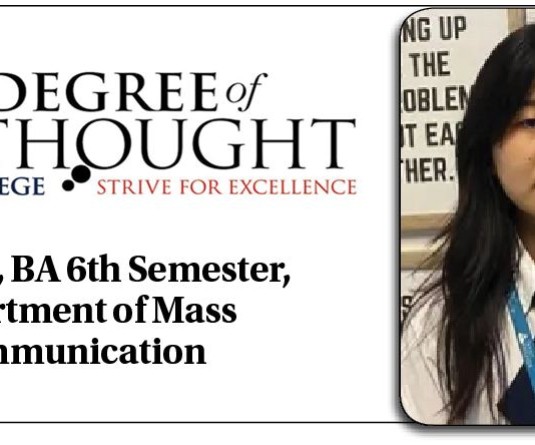
India is no doubt a secular country with people from numerous cultures, communities, linguistic multitude, numerous ethnic groups, with so many religions and religious wings carrying their own exclusive and unique identity. Their co-existence makes India truly incredible in many ways. In fact, India is the only country in the world that may be called the home to all four major religions of the world. The religious conceptions of India are so vast that they cover almost every aspect of life, from birth to till death. The religious tolerance and values have had and will continue to have immense influence in the pluralistic Indian culture with diverse religiously experience.
The term Uniform Civil Code (UCC) is explicitly mentioned in Part-IV, Article 44 of the Indian Constitution. It says, “The State shall endeavour to secure for the citizens a uniform civil code throughout the territory of India.” The psychology behind UCC is rooted in the idea of equality and uniformity before the law and it also aims to replace the personal laws which are based on religious practices. The UCC resonates with one country one rule policy. The sole objective behind this Article 44 is to effect an integration of India by bringing all communities on the common platform on issues which are, at present, governed by diverse personal laws but which do not form the spirit of any religion. Through the implementation of UCC, all people will get equal status and there would be no discrimination and the country will emerge with new force and power and will speak together and the burden of judiciary would decrease and can expect speedy justice too.
At the time of drafting of the constitution, prominent leaders like Pt. Jawaharlal Nehru and Dr BR Ambedkar pushed for a UCC, because they were aware about UCC as an instrument that will help the cause of national integration by removing the contradictions based on ideologies. However, they included the UCC in the Directive Principles of State Policy (DPSP) mainly due to opposition from religious fundamentalists and lack of awareness among the masses during the time of independence.
Though DPSP is non-enforceable through the courts of law, yet it is fundamental in the governance of the country. No time limit has been laid for the implementation of the DPSP by the makers of the Constitution. Many believe that this was included in the Constitution with a motive to lay down the provision that will give opportunities to the states to apply these principles in making laws. It is expected that UCC will integrate and unite India more than it has been since independence. It will help in bringing every Indian together, despite his caste, religion, or tribe under one national civil code of conduct.
The Personal Laws (i.e. the various religious laws) mean an alternate judicial system of major religious communities that sill operates on thousands of years old values. However, women in India under the personal laws continue to suffer discrimination and inequalities in the matters of marriage, divorce, adoption, inheritance of property, succession, and maintenance, etc. So as a step towards gender justice and better society, the personal laws of various communities in India need a closer look and reformed, not only in acquiescence with the Indian Constitution but also as per the provisions of the international law.
At present, almost all the countries including many Muslim countries, personal laws have been subjected to suitable change in view of the prevalent local conditions. But in India, unfortunately the conflict between common law and personal laws has created an unavoidable and vindictive controversy, which has been emerged not from reasons, but from misinterpreted religious sentiments.
Some of the historic cases stressed the need for a UCC to remove contradictions based on ideologies, prevent fraudulent conversions, to regulate marriages and divorces. For example, in the Shah Bano Case (1985), the Supreme Court (SC) upheld the right of a Muslim woman to claim maintenance from her husband even after the divorce (Iddat period); in the Sarla Mudgal Case (1995), the SC stated that a Hindu husband cannot convert to Islam and marry without dissolving his first marriage; in the Shayara Bano Case (2017), the SC declared triple talaq as unconstitutional and violative of Muslim women’s dignity and equality. There would be more such cases in India which are unnoticed. Based on these practical instances, they prove that Articles 14, 15 and 21 of our Constitution failed to give equal justice and protect the Fundamental (Human) Rights to those people who suffered or suffering discriminations.
Goa is the only Indian state to have a UCC in the form of common family law. Although, the UCC in Goa is derived from the Portuguese Civil Code and has certain drawbacks and is not strictly a uniform code, it continues to remain in-force even today. Some of the important features of UCC of Goa are stated below:
• The UCC in Goa is a progressive law that allows equal division of income and property between husband and wife and also between children (regardless of gender).
• Every birth, marriage and death must be compulsorily registered. For divorce, there are several provisions.
• Muslims who have their marriages registered in Goa cannot practice polygamy or divorce through triple talaq.
• During the course of a marriage, all the property and wealth owned or acquired by each spouse is commonly held by the couple.
• Each spouse in case of divorce is entitled to half of the property and in case of death, the ownership of the property is halved for the surviving member.
• The parents cannot disinherit their children entirely. At least half of their property has to be passed on to the children. This inherited property must be shared equally among the children.
Thus, Goa UCC prevents child marriage, checks bigamy and polygamy, helps women to exercise their rights under marriage, custody of children, enables widows to claim inheritance, and deters husbands from deserting their wives.
In conclusion, UCC is a sign of modern progressive nation and it can also promote real Secularism. I feel that the desirability of the UCC can hardly be doubted. For this we need a progressive and broadminded attitude among the people to understand the spirit of such code. However, this matter being sensitive is nature; a strong political will is necessary that requires true consensus of all the political parties. It can only be concretised if social climate is properly built and masses awakened to accept these changes under a committee of eminent jurists who would maintain uniformity and communal harmony, without hurting the sentiments of any community. For a better future for the next generation, it is imperative that a uniform code is an absolute necessity for the promotion of national unity and solidarity.
The Degree of Thought Column is a weekly community column initiated by Tetso College in partnership with The Morung Express. The column explored contemporary social, cultural, political, and educational issues and challenges around us. However, the views expressed here do not reflect the opinion of the institution. Tetso College is a NAAC-accredited, UCG-recognized Commerce and Arts college. Currently, the Degree of Thought Column is managed by the department of Mass Communication, and the editorial team are Dr Jenny Lalmuanpuii, KC Gabriela and Rinsit Sareo. For feedback or comments, please email: dot@tetsocollege.org.






